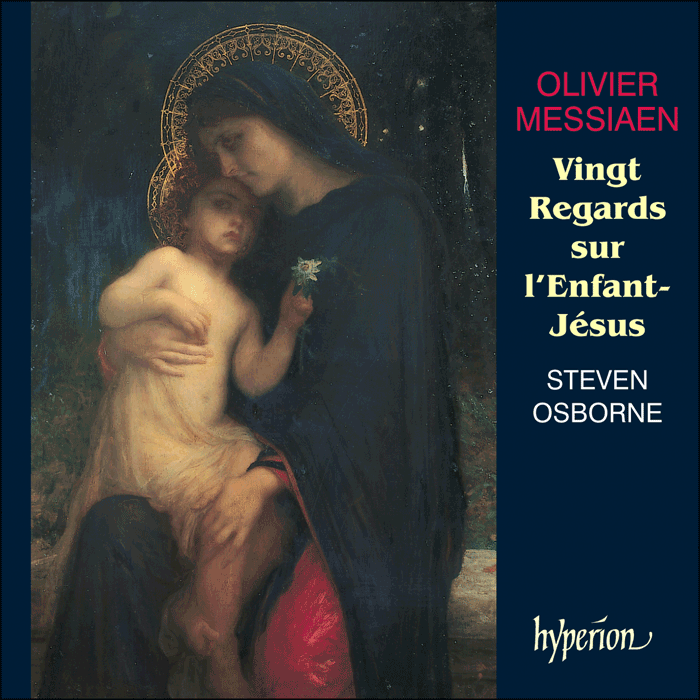Messiaen: Vingt Regards sur l’Enfant-Jésus
Steven Osborne (piano)
CDA67351/2
Messiaen's Vingt Regards sur l'Enfant-Jésus is one of the most grandly conceived works in the piano literature. It was composed in 1944 in Paris, during terribly troubled times. Although it met with a mixed critical reception, the Vingt Regards are now recognized as one of the most important piano works of the twentieth century.
Steven Osborne is the ideal interpreter of this deeply religious, joyfully ecstatic music. He has played the complete Vingt Regards many times in concert, and after one performance at London's Wigmore Hall, The Independent wrote: "No pianist, surely, can have done it more justice … Osborne had a wonderful sense of sweep and colour [and] had his listeners rapt for no less than two hours and 10 minutes without an interval. Even unbelievers might have felt like falling to their knees".
Combining virtuoso aplomb with a deep spiritual understanding, we believe that this recording captures the atmosphere of this great music more than any other. Osborne's Messiaen is an overwhelming and intensely fulfilling musical experience—one not to be missed.
Behind The Cover
A Christmas favourite like no other: Olivier Messiaen's 'Vingt Regards sur l'Enfant-Jésus' is a massive, two-hour cycle for solo piano, now recognized as one of the most important twentieth-century works for the instrument. Written and first performed in wartime Paris, the circumstances of its composition might lead listeners to expect a darkly troubled work, yet nothing could be further from the truth—the qualities of mystic contemplation and blazing joy which are so characteristic of Messiaen's mature style (and characteristic of his faith) inform every page of this extraordinary piece. Which isn't to say the critical reaction to the 'Vingt Regards' following its first complete performance on 26 March 1945 was unanimously positive. For one thing, the written commentary which Messiaen had supplied for the audience's benefit to help 'explain' the music, proved controversial in its personal mix of theology and advanced musical theory ('abysmal' was one verdict); and for another, some critics doubted—not for the first time—whether Messiaen's compositional style could be considered appropriate for religious music ('it is impossible to detect either usefulness or pleasure … Is this heaven? No, it's purgatory').
Curiously, one otherwise enthusiastic critic demurred over the Lisztian 'transcendental' nature of much of the piano writing, thinking it out of place with the work's intense, intimate spirituality. And yet, it was just those qualities which Radio 3's Record Review singled out for especial praise in this account from Steven Osborne on its release: 'an ideal combination of spirituality and transcendent virtuosity … an outstanding achievement', and it's difficult to argue with that assessment—surely, if there's one composer who combines spirituality with transcendent virtuosity (and demands the same qualities from his interpreters) it has to be Messiaen.
If you're keen to explore further, why not investigate Messiaen's other, earlier, great work on the Incarnation: 'La Nativité du Seigneur', for organ. David Titterington's Hyperion recording (https://hyperion.lnk.to/cda66230) concludes with an appropriately joyous account of the spectacular last movement: Dieu parmi nous. Just the thing for Christmas morning …

